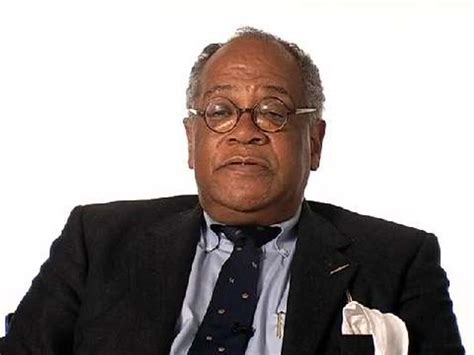A Quote by Philip Yancey
I once heard a theologian remark that in the Gospels people approached Jesus with a question 183 times whereas he replied with a direct answer only three times. Instead, he responded with a different question, a story, or some other indirection. Evidently Jesus wants us to work out answers on our own, using the principles that he taught and lived.
Related Quotes
But in the end, science does not provide the answers most of us require. Its story of our origins and of our end is, to say the least, unsatisfactory. To the question, "How did it all begin?", science answers, "Probably by an accident." To the question, "How will it all end?", science answers, "Probably by an accident." And to many people, the accidental life is not worth living. Moreover, the science-god has no answer to the question, "Why are we here?" and, to the question, "What moral instructions do you give us?", the science-god maintains silence.
We can each sit and wait to die, from the very day of our births. Those of us who do not do so, choose to ask - and to answer - the two questions that define every conscious creature: What do I want? and What will I do to get it? Which are, finally, only one question: What is my will? Caine teaches us that the answer is always found within our own experience; our lives provide the structure of the question, and a properly phrased question contains its own answer.
For the Jesus Revolutionaries, the answer was clear: Jesus would not be out waging "preventative" wars. Jesus would not be withholding medicine from people who could not afford it. Jesus would not cast stones at people of races, sexual orientatons, or genders other than His own. Jesus would not condone the failing, viperous, scandalplagued hierarchy of some churches. Jesus would welcome everyone to his his table. He would love them, and he would find peace.
Notice carefully every word here. It is not our prayer which draws Jesus into our hearts. Nor is it our prayer which moves Jesus to come in to us. All He needs is access. He enters in of His own accord, because He desires to come in. To pray is nothing more involved than to let Jesus into our needs, and permitting Him to exercise His own power in dealing with them. And that requires no strength. It is only a question of our wills. Will we give Jesus access to our needs?.
Do we not see God at work in our circumstances? Dark times are allowed and come to us through the sovreignty of God. Are we prepared to let God do what He wants with us? Are we prepared to be separated from the outward, evident blessings of God? Until Jesus Christ is truly our Lord, we each have goals of our own which we serve. Our faith is real, but it is not yet permanent. And God is never in a hurry. If we are willing to wait, we will see God pointing out that we have been interested only in his blessings, instead of God Himself.
Every once in awhile, find a spot of shade, sit down on the grass or dirt, and ask yourself this question: “Do I respect myself?” A corollary to this question: “Do I respect the work I’m doing?” If the answer to the latter question is NO, then the answer to the former question will probably be NO too. If this is the case, wait a few weeks, then ask yourself the same two questions. If the answers are still NO, quit.
To me, however, the question of the times resolved itself into a practical question of the conduct of life. How shall I live? We are incompetent to solve the times. Our geometry cannot span the huge orbits of the prevailing ideas, behold their return, and reconcile their opposition. We can only obey our own polarity.
The question should not be 'What would Jesus do?' but rather, more dangerously, 'What would Jesus have me do?' The onus is not on Jesus but on us, for Jesus did not come to ask semidivine human beings to do impossible things. He came to ask human beings to live up to their full humanity; he wants us to live in the full implication of our human gifts, and that is far more demanding.
The early Christians' opponents all accepted that Jesus existed, taught, had disciples, worked miracles, and was put to death on a Roman cross. As in our day, debate and disagreement centred largely not on the story but on the significance of Jesus. Today nearly all historians, whether Christians or not, accept that Jesus existed and that the gospels contain plenty of valuable evidence which has to be weighed and assessed critically.
The church has been preoccupied with the question, 'What happens to your soul after you die?' AS IF THE REASON FOR JESUS COMING CAN BE SUMMED UP IN, 'JESUS IS TRYING TO HELP GET MORE SOULS INTO HEAVEN, AS OPPOSED TO HELL, AFTER THEY DIE.' I JUST THINK A FAIR READING OF THE GOSPELS BLOWS THAT OUT OF THE WATER. I don't think that the entire message and life of Jesus can be boiled down to that bottom line
...the story of a man who saw three fellows laying bricks at a new building:
He approached the first and asked, What are you doing?
Clearly irritated, the first man responded, What the heck do you think I'm doing? I'm laying these darn bricks!
He then walked over to the second bricklayer and asked the same question.
The second fellow responded, Oh, I'm making a living.
He approached the third bricklayer with the same question, What are you doing?
The third looked up, smiled and said, I'm building a cathedral.
At the end of the day, who feels better about how he's spent his last eight hours?


































